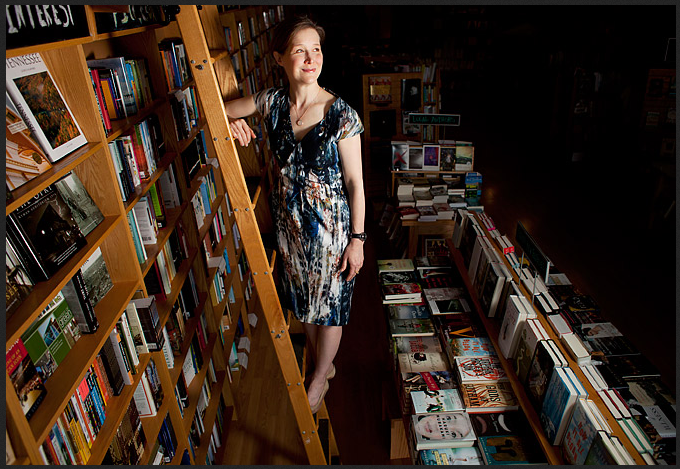Do you want to do this thing? Sit down and do it. Are you not writing? Keep sitting there. Does it not feel right? Keep sitting there. Think of yourself as a monk walking the path of enlightenment. Think of yourself as a high school senior wanting to be a neurosurgeon. Is it possible? Yes. Is there a shortcut? Not one I’ve found. Writing is a miserable, awful business. Stay with it. It is better than anything in the world.
Miserable Nanowrimos will find plenty of encouragement to keep at it in Ann Patchett’s latest release, but you’ll have to wait until December when you’re off duty and allowed to read it. Until then, here’s my review from yesterday’s Star Tribune:
This Is the Story of a Happy Marriage
(Harper Collins, 320 pages, $28.99, 320 pages)
“I was always going to be a writer. I’ve known this for as long as I’ve known anything,” Ann Patchett declares in her new collection of personal essays, and she’s got the gold-plated publishing resume to prove it: degrees from Sarah Lawrence and the Iowa Writers’ Workshop, Guggenheim fellowships and Yaddo residencies, meaningful personal references from such mentors as Allan Gurganus, Grace Paley and Russell Banks, not to mention an independent bookstore of her own that gets even more ink than Garrison Keillor’s.
Given Patchett’s well-charted c.v. as a literary over-achiever, there’s one award that may surprise—the pin she earned “for being the first person … to receive a perfect score on the written waitress test” at the T.G.I. Friday’s near her mother’s house, where she retreated after a short and disastrous early marriage. “I was required to wear a funny hat. I served fajitas to people I had gone to high school with, and I smiled,” she writes in a painful and funny essay titled “The Sacrament of Divorce.” “I did not die.”
Patchett’s gift for getting the best material from the worst of times is one of pleasures of This Is the Story of a Happy Marriage, a cleverly repackaged collection of essays published between 1996 and 2012. Though most were written on assignment for venues as varied as Vogue and The Wall Street Journal, each piece advances the arc of the author’s own story as she introduces us to some of the loves of her life—the state of Tennessee, a dog named Rosie, the nun who took the time to teach her to read, and eventually her husband Karl, a Nashville doctor she took more than a decade to marry.
Readers will recognize he’s the one in “My Road to Hell Was Paved,” in which the on-again/off-again couple embark on a 1998 RV odyssey of the American West, winding up at Yellowstone (“which is to Winnebagos what upstream is to salmon,” Patchett explains.) Postponing marriage is her plan to keep breaking up at bay, but she finds a flaw on her strategy while flying through a blizzard to be at his bedside at Rochester’s Mayo Clinic. “By not marrying him, he would never be lost to me. Now I could see the failure of my imagination. I had accounted only for the loss I knew enough to fear.”
Before she hit the bestseller list with novels like Bel Canto and State of Wonder, Patchett paid her dues working as a freelancer for Seventeen, an experience she credits with honing her work horse writing habits, which she explores in several essays aimed at aspiring MFAs. “I would always rather knock off an essay than face down the next chapter in my book,” she claims, but all of the periodical pieces collected are finely polished, worthy of their new packaging between two hard covers.
Laura Billings Coleman is a writer in St. Paul.

